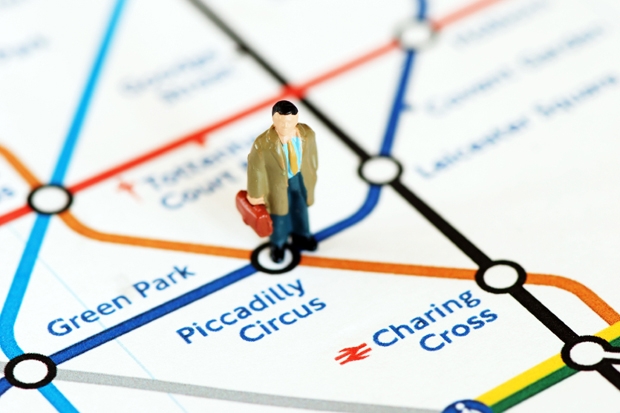Afamily member is thinking of moving and asked for commuting advice.
Well, first add 25 per cent to any journey time estimate containing the phrase ‘door to door’. When commuters cite journey time to work, the journey they have in mind is one which happens with the frequency of a solar eclipse: when every traffic light is miraculously green and the train draws in just as you reach the platform. Generally the words ‘door to door’ can be replaced by ‘in a parallel universe’ without altering the meaning of the surrounding sentence.
I also advised asking the estate agent what is the second-best way to get to work. No one ever thinks of asking this, but it is vital. For a variety of reasons (leaves, signalling failures, strikes) your main route will fail occasionally. If there is a tolerable fallback option, this doesn’t matter much. Your second-best route is almost as important as your best.
My third recommendation was to avoid buying a season ticket for the first few months to encourage experimentation. There is no single answer to the question ‘How do I get from A to B?’ It depends on a host of considerations: whether you are carrying luggage or want to buy a pint of milk on the way home. A season ticket will lock you into a route before you have time to discover useful alternatives.
The week after I had given this last piece of advice, surprising confirmation surfaced in a paper from the Universities of Oxford and Cambridge: Larcom, Shaun, Ferdinand Rauch and Tim Willems (2015), ‘The Benefits of Forced Experimentation: Striking Evidence from the London Underground Network’. The authors had analysed Oyster Card data from several weeks around the partial London Tube strike in February last year to test a theory that short, partial Tube strikes may benefit London travellers overall, because they force people to try different routes to work, some of which prove better than the ones to which they have become habituated. Sure enough, when they analysed the 200 million data points in the period, they found 5 per cent of people forced to adopt a new route to work during the Tube strike continued using that new route after the strike had ended. The long-term benefits of the new routes people had been ‘made to discover’ soon outweighed the cost of the strike.
The data also revealed that people were most likely to make a permanent switch in areas where the Tube map was most distorted (people who, say, found you can easily reach the Central line on foot from Paddington station via Lancaster Gate, rather than using the Circle line as the map suggests).
The implications of this seem fascinating. For one thing it suggests that the best London Tube map should not be a single map: instead you should have a variety of maps to inject healthy variation into people’s behaviour. If you can’t achieve perfection, at least vary the distortions.
I also wonder what to what extent London property prices are deformed by people using the Tube map as though it were London itself. By omitting railway lines, the Tube map is astoundingly unkind to south London: how many people know that it is quicker to get to central London from Bromley than from Fulham? The map is not the territory.
It may seem ridiculous to suggest that London’s property problem could be partly solved by better physical and mental maps, but the transformational effect of adding the Overground to the Tube map supports this view. Recently I heard someone say, ‘I want to move to Penge because it’s so handy for Shoreditch.’ In 1990 you would have expected that sentence to continue ‘… and I like to hit my genitals with a claw hammer.’







Comments